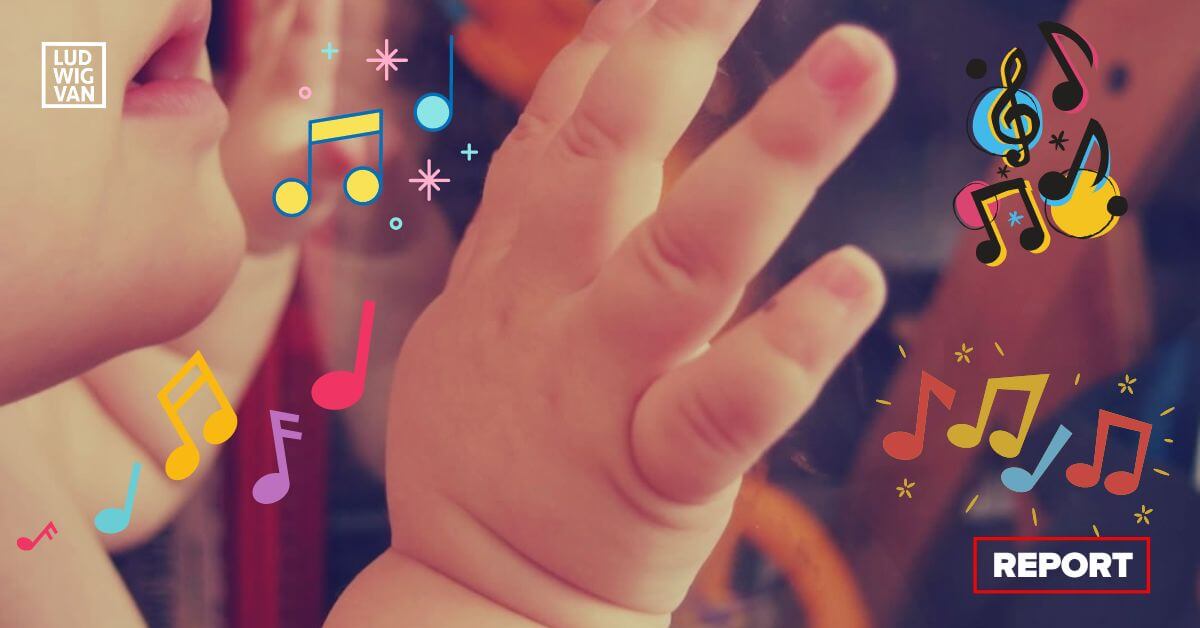
Even babies prefer live over recorded music performance, as a recent study published by researchers at the University of Toronto and others reveals.
The paper, An itsy bitsy audience: Live performance facilitates infants’ attention and heart rate synchronization., was published in the journal Psychology of Aesthetics, Creativity, and the Arts, (Jul 13, 2023). It’s a combined effort of researchers at the UofT Scarborough, Bucknell University, Université du Québec à Trois-Rivières, and the Dept. of Settlement & Community Services in Toronto.
The effects of music on audiences has been the subject of several studies in recent years. Here, the goal was to study the effects of music beyond a lab environment. The researchers examined the reactions of infants at live vs recorded versions of baby opera performances on a behavioural and physical level.
- They analyzed results for two audiences made up of babies 6 to 14 months of age;
- The two audiences watched a baby opera at the McMaster University LIVELab (a combination of concert hall and research facility);
- Two more audiences in the same age range watched a recorded playback of the same performance in the same venue;
- A third control group in the same age range viewed the playback at home via whatever device their families owned.
Why babies? The researchers call them “naive” test subjects. They have no preconceptions about what is proper, or how they should respond to music. They don’t know any of the music beforehand, and familiarity doesn’t enter into the equation. Socialization can also play a role in how we behave and respond to a live concert.
Results
The live performance was a 12-minute excerpt from The Music Box, an opera for babies composed by one of the paper’s authors in collaboration with other professional musicians.
- The groups that watched the live performance paid more attention overall, and for longer periods of time;
- The babies who watched the performance at home did become engaged, but in shorter spurts;
- The physiological responses of audience members become coordinated with each other and with the music.
Along with gauging the infants’ attention levels from visual cues, using recognized tools, heart rate data was collected from a subset of each group.
- Live performance captured the audience’s attention about 72% of the time, while the recorded performance drew attention about 54% of the time;
- The babies watching live-over-Zoom paid attention about 64% of the time, but in shorter spurts, and were more easily distracted;
- Heart rates were higher while experiencing the recorded version;
- Heart rates were coordinated more tightly for the audience listening to live music, and were synced across the same audience (vs the other group listening to the same performance).
“Their heart rates were speeding up and slowing down in a similar fashion to other babies watching the show,” says Laura Relic, assistant professor in the department of psychology at the University of Toronto Scarborough and co-author, in a UofT publication.
Just how it all works is not known. Researchers believe it may be the result of the interaction between the audience and performer. They also posit that the synchronization of heart beats in a live audience may be linked to the emotional response to the music.
The Audience Effect
In the Western music industry paradigm, the audience is not part of the equation when it comes to the artistic side. They’re important to the bottom line — ticket sales — but their experiences are not typically valued or considered from any other perspective.
For classical music performances, in particular, the role of the audience member is entirely passive, and based on silence and immobility.
The new paper, and a growing body of evidence, says that the effects of experiencing live music with other people is uniquely powerful and enriching, even at a physiological level.
Perhaps it’s time to reconsider what role audiences play within the framework of live performance, and by extension, live performance in society. Shared experiences bond people together and add to a sense of community.
It can’t be quantified in dollars and cents.
#LUDWIGVAN
Get the daily arts news straight to your inbox.